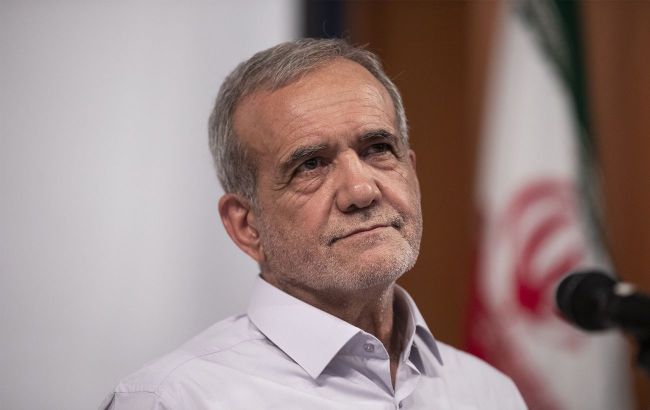Iran promises decisive response to Israel's operations against allied groups - Sky News
 President of Iran Masoud Pezeshkian (photo: Getty Images)
President of Iran Masoud Pezeshkian (photo: Getty Images)
Iranian authorities have promised a decisive response to Israel's operations against Iranian allies in the Middle East region. However, Tehran has likely miscalculated the risks that Jerusalem is willing to take, reports Sky News.
Sky News suggests that in the face of a large-scale attack on Islamist groups, Israel may identify Iran's nuclear facilities as the next major threat. The unspoken rules that previously restrained direct Israeli attacks on Iran have been broken following the assassination of Hezbollah's leader in Lebanon, the significant neutralization of Hamas in the Gaza Strip, and extensive airstrikes against Houthi targets in Yemen.
Currently, Israeli forces are preparing for a possible ground invasion of Lebanon, aiming to inflict long-term damage on Hezbollah, the region's largest armed force and Iran's most valuable insurance policy.
The speed and intensity of these events make predictions impossible. However, a priority for Iran will be to attempt to restore its deterrence capabilities, although it may already be too late.
Sky News notes that Israel's actions aim to achieve a fundamental shift in the balance of power in the region, where Iran's axis of resistance - armed groups funded, equipped, and trained by Iran to act in its interests - has become an exceptionally powerful force.
Matthew Savill, director of military sciences at the Royal United Services Institute, believes that Iran has a reputation for calibrating its operations to avoid escalation into direct war with Israel. However, according to the analyst, "But it seems to have badly miscalculated how much risk the Israelis - and Netanyahu in particular - are willing to take after 7 October, given the shock that produced in Israel and the level of threat it created."
"The so-called axis of resistance is meant to be a deterrent to attacks on Iran. But Iran probably won't risk direct war on behalf of its partners," Savill noted.
Sky News reminds us that Israeli Prime Minister Benjamin Netanyahu has consistently warned about the danger Tehran poses to his country, particularly regarding its intention to acquire nuclear weapons - a step that Israel will not tolerate.
"In the past, calculations about Iran by Israel and its closest ally, the US, were based on an understanding that a direct attack would risk Hezbollah - in Iran's defence," Sky News states.
The assassination of Hamas leader Ismail Haniyeh by Israel has generated new expectations of retaliation, which have yet to materialize. Iran's silence may have pushed Israel to further cross red lines, culminating in the recent targeting of Hezbollah leader Hassan Nasrallah last Friday.
Iranian President Masoud Pezeshkian condemned the Israeli attacks against Hezbollah, Hamas, and the Houthis, promising a response without specifying how.
"We cannot accept such actions and they will not be left unanswered," he stated.
Tehran's Islamic Revolutionary Guard Corps (IRGC) possesses a powerful missile arsenal, enhanced by new technologies and capabilities from Russia. This means that any confrontation could be catastrophic for the region - a reality that both Iran and Israel are acutely aware of when making decisions about responses and counter-responses.
"The US appears increasingly worried about what comes next if calls for a ceasefire between Israel and Hezbollah as well as Israel and Hamas continue to go unheeded. The Middle East has been on the brink of all-out war for almost a year but this is by far the most dangerous moment," writes Sky News.
Risk of a large-scale war in the Middle East
In recent months, the situation in the Middle East has significantly escalated. Following the devastating operation by the Israeli army in the Gaza Strip, the IDF recently launched a military operation in southern Lebanon against another Iranian ally, the group Hezbollah.
That night, IDF troops began ground attacks in southern Lebanon as part of the operation against the group's militants.
On the night of October 1, the Israeli Air Force carried out at least six airstrikes on the suburbs of Beirut, destroying several houses.
As reported by CNN, the Israeli army does not plan for a long-term occupation of Lebanon or a prolonged military presence in the country.

